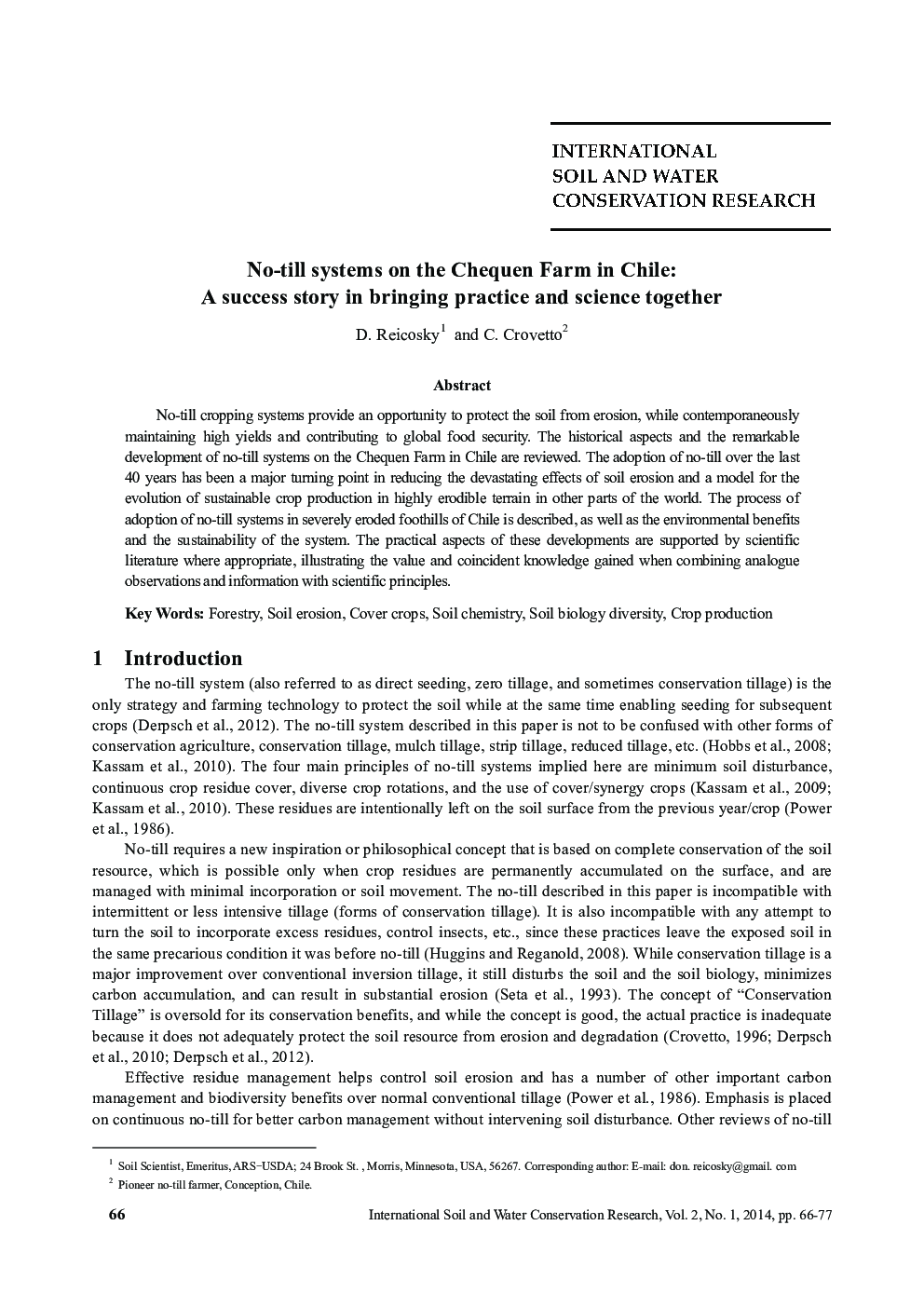| Article ID | Journal | Published Year | Pages | File Type |
|---|---|---|---|---|
| 4452164 | International Soil and Water Conservation Research | 2014 | 12 Pages |
No-till cropping systems provide an opportunity to protect the soil from erosion, while contemporaneously maintaining high yields and contributing to global food security. The historical aspects and the remarkable development of no-till systems on the Chequen Farm in Chile are reviewed. The adoption of no-till over the last 40 years has been a major turning point in reducing the devastating effects of soil erosion and a model for the evolution of sustainable crop production in highly erodible terrain in other parts of the world. The process of adoption of no-till systems in severely eroded foothills of Chile is described, as well as the environmental benefits and the sustainability of the system. The practical aspects of these developments are supported by scientific literature where appropriate, illustrating the value and coincident knowledge gained when combining analogue observations and information with scientific principles.
